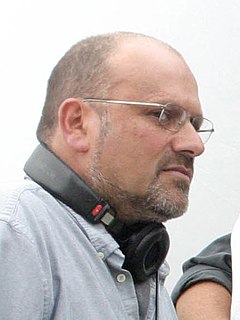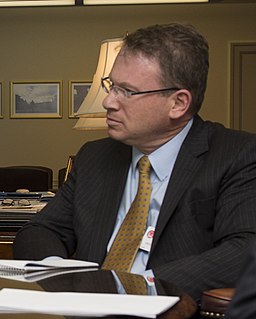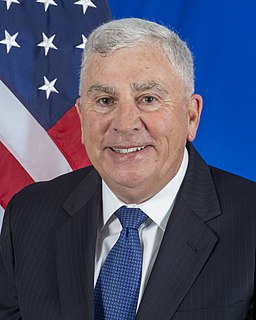A Quote by Peter R. Mansoor
I think this does show that there will be some changes, not so much in Europe or Asia but certainly in the Middle East. General [James] Mattis has called for a comprehensive strategy to combat the various enemies the United States faces in the Middle East, especially Iran.
Related Quotes
I believe that the Iraqis have an opportunity now, without Saddam Hussein there, to build the first multiconfessional Arab democracy in the Middle East. And that will make for a different kind of Middle East. And these things take time. History has a long arc, not a short one. And there are going to be ups and downs, and it is going to take patience by the United States and by Iraq's neighbors to help the Iraqis to do that. But if they succeed, it'll transform the Middle East, and that's worth doing.
Sadly, a U.S. invasion of Iraq 'would threaten the whole stability of the Middle East' - or so Amr Moussa, secretary-general of the Arab League, told the BBC on Tuesday. Amr's talking points are so Sept. 10: It's supposed to destabilize the Middle East. The stability of the Middle East is unique in the non-democratic world and it's the lack of change in Iraq, Iran, Saudi Arabia, Syria, Egypt that's turned them into a fetid swamp of terrorist bottom-feeders.
I thanked the President [George W. Bush] for the steadfastness and resolve with which he's tackling the very complicated problems in the Middle East and Iraq, as well as the Israel-Palestinian issue.... It's critical for us in Southeast Asia that America does that.... because it affects America's standing in Asia and the world, and also the security environment in Asia because extremists, the jihadists, watch carefully what's happening in the Middle East and take heart, or lose heart, depending on what's happening.
It was important for me to show that Beirut and Lebanon were once the pearl of the Middle East. Beirut was once called the Paris of the Middle East and to have that feeling of a destroyed place that once was beautiful and glamorous and visually impressive was important. I think it's even sadder to get the feeling that this country, and indeed the whole Middle East, could have been a major force in the world if people would get together and forget about destruction, death and wars. But unfortunately, it's not happening yet.
The United States has kept the peace through our alliances. Donald Trump wants to tear up our alliances. I think it makes the world safer and, frankly, it makes the United States safer. I would work with our allies in Asia, in Europe, in the Middle East, and elsewhere. That's the only way we're going to be able to keep the peace.
I have for some time now been deeply troubled by the growing difficulties faced by Christian communities in various parts of the Middle East. It seems to me that we cannot ignore the fact that Christians in the Middle East are increasingly being deliberately targeted by fundamentalist Islamist militants.
I don't believe in the theory that the United States is reducing its presence in the Middle East. Quite the contrary, in the Gulf, we see an increase in American military presence, as well as an increase in American investments. The argument is more accurate when one says America is focusing more attention to the Far East. But I don't believe it comes at the expense of the Middle East.



































